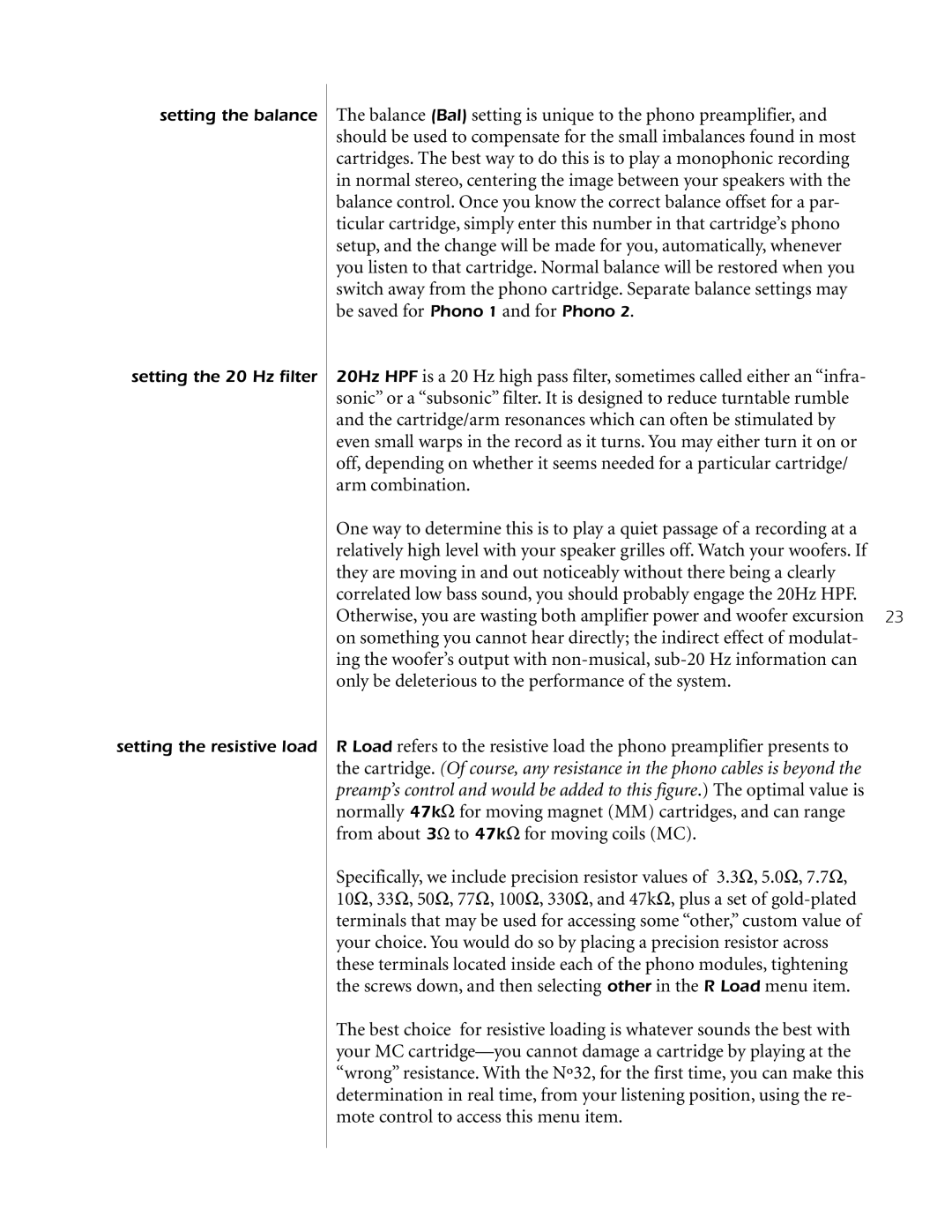N32 specifications
The Mark Levinson N32 is a sophisticated audio preamplifier known for its exceptional performance and advanced technology. Designed for audiophiles and music enthusiasts, the N32 delivers a seamless integration of high-fidelity sound with a user-friendly interface, making it an ideal choice for any high-end audio system.One of the standout features of the N32 is its innovative design. The preamp utilizes a fully balanced signal path that minimizes noise and distortion, ensuring that the music is delivered in its purest form. This balanced architecture is complemented by premium-quality components that are meticulously selected for their sonic properties. The N32 boasts a high signal-to-noise ratio, providing an expansive dynamic range that brings out the subtleties in music.
The N32 is equipped with a robust power supply that enhances performance by delivering stable voltage and current to the internal circuits. This power supply is specifically designed to handle the demands of high-resolution audio sources while reducing the likelihood of interference. As a result, users can expect clear, detailed sound reproduction that captures every nuance of the recording.
Another notable technology employed in the N32 is the use of digital signal processing (DSP). This allows for precise control over various audio parameters, enabling users to tailor their listening experience to personal preferences. With features such as adjustable gain, tone control, and digital filters, the N32 caters to a wide range of playback needs, ensuring optimal sound quality regardless of the audio source.
In terms of connectivity, the Mark Levinson N32 offers a versatile array of inputs and outputs. It supports various analog and digital formats, allowing users to connect a range of devices, from CD players to streaming services. The inclusion of both balanced XLR and unbalanced RCA inputs ensures compatibility with a broad spectrum of audio components.
Additionally, the N32 comes equipped with a refined user interface that enhances accessibility. The intuitive layout and clear display make it easy to navigate through settings and options, further enriching the overall user experience.
In summary, the Mark Levinson N32 represents a culmination of state-of-the-art technology and meticulous engineering. With its balanced signal path, robust power supply, digital signal processing capabilities, and versatile connectivity options, it establishes itself as a prominent choice for those seeking unparalleled audio performance. Whether you are a casual listener or a dedicated audiophile, the N32 promises to elevate your music experience to new heights.
